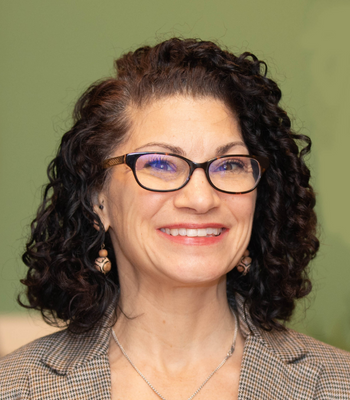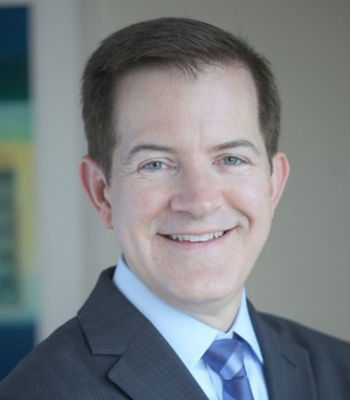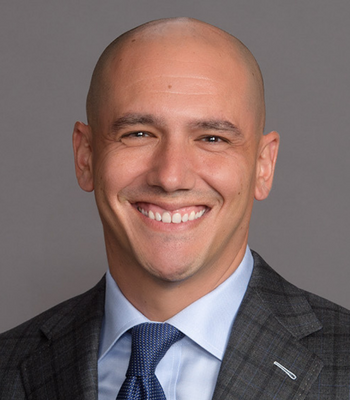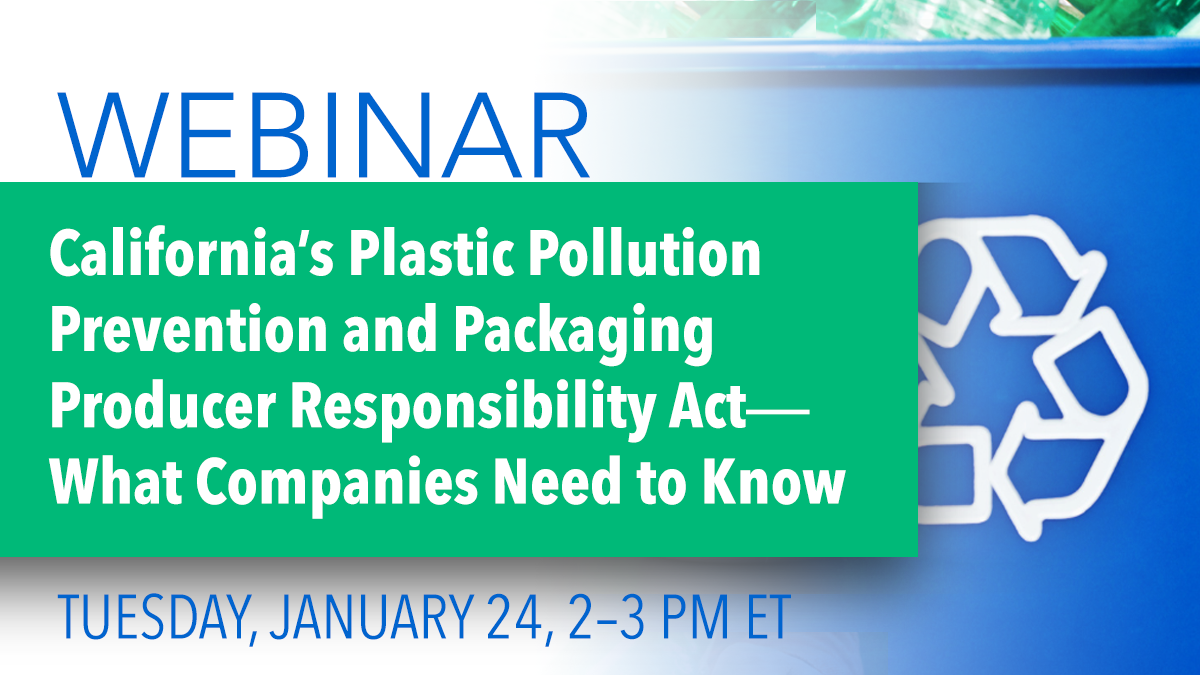Now available on demand for CRN members.
Background
On June 30, 2022, Governor Newsom signed California Senate Bill 54, establishing an extended producer responsibility (EPR) program for virtually all single use packaging and plastic foodware in California, regardless of material type. The enactment of this law is essentially an alternative to an initiative that would have appeared on the November 2022 ballot; if this initiative had passed, many believed it would be far more cumbersome for industries that rely on plastic packaging for their goods.
Requirements
The law requires that all single-use packaging sold in CA (primary, secondary, and tertiary packaging) must be recyclable or compostable by 2032 and mandates specific recycling rates for items sold in California, regardless of the location of the distributor:
- 30% by 2028
- 40% by 2030
- 65% by 2032
CalRecycle, the state agency that oversees recycling, waste management, and waste reduction in California, can adjust these rates 10% up or down depending on various market factors. Additionally, all single-use plastic packaging must achieve a source reduction of 25% by weight and 25% by component by 2032 for material sold or distributed in CA. The reduction in components must be broken down as follows: 10% must be converted to reusable/refillable or eliminated entirely, and 15% shall be source reduced in a way that allows consumers to refill home or commercial reusable containers and/or shift to non-plastic covered material. It should be noted that the law excludes the following from the definition of recycling: “combustion, incineration, energy generation, fuel production, except for anaerobic digestion of source separated organic materials, and other forms of disposal”.
Materials that have demonstrated a recycling rate of 65% for three consecutive years by 2027, amongst other requirements, are excluded from the bill’s provisions.
Compliance
Producers, which are defined as manufacturers or brand owners of products that use covered materials, must form a producer responsibility organization (PRO) by 2024 unless the producer meets specific enumerated requirements to comply individually. Starting in 2027, the PRO will submit $500 million into an environmental mitigation fund for 10 years. However, this is preferable to the $9 billion per year required by the ballot initiative. The PRO must develop compliance plans approved by CalRecycle that must include how revenue is raised via eco-modulated fees and what investment strategies will achieve target rates.
Noncompliance
If an entity is not in compliance with the law, a 24-month corrective action plan will go into effect, with one additional 12-month plan if necessary. However, if an entity still fails to comply, CalRecycle may begin levying penalties up to $50,000 per day.
The full text of the bill can be found here.
Next Steps
There are several actions companies can take to prepare for the implementation of the new law:
- CalRecycle’s website serves as a depository of background information, public notices, and events related to SB 54. The agency hosts monthly workshops related to compliance; CRN member companies are encouraged to sign up for CalRecycle’s listserv to receive important updates.
- Companies should consider preparations in the near term and work with suppliers to determine actions that need to be taken to comply with the new law.
- Review CRN’s January 24 SB 54 webinar recording.
With:
Tina Andolina
Senior Policy Consultant
California State Senator Ben Allen

Tina Andolina has served as a Senior Policy Consultant for California State Senator Ben Allen since 2015, advising the Senator on issues related to the environment, energy, natural resources, water, and climate change. Andolina has served as director of legislation and regulation at the California Department of Pesticide Regulation under the Brown Administration, and prior to that served as legislative consultant for State Senator Lois Wolk. Before entering state service, she was an advocate, organizer, and lobbyist for several environmental nonprofit organizations working both in DC and Sacramento. Andolina worked on efforts to pass Federal Wilderness legislation, including the Big Sur Wilderness and Conservation Act of 2002 and later the Northern California Coastal Wild Heritage Wilderness Act of 2006. Upon coming to Sacramento, she worked as a lobbyist for the Coalition for Clean Air and the Planning and Conservation League.
Trenton Norris
Partner
Arnold & Porter

Trent Norris is one of the country’s foremost consumer product attorneys. His clients are consumer product manufacturers, distributors, and retailers facing challenges from plaintiffs’ lawyers, state attorneys general, and local district attorneys. In 30 years of practice, Mr. Norris has represented over a thousand companies in lawsuits and regulatory matters concerning state consumer protection and environmental laws, with particular emphasis on packaging issues and California Proposition 65.
Mr. Norris has represented hundreds of supplement manufacturers, retailers, and trade associations in such matters. He lobbies California environmental agencies and both challenges and defends regulatory actions in court. Mr. Norris is listed in Chambers USA for both Environmental and Food & Beverages Regulatory and Litigation and in Best Lawyers for Environmental Law. He is a magna cum laude graduate of Harvard Law School, where he was an editor of the Harvard Law Review.
Anthony Samson
Managing Principal
Samson Advisors

A litigator turned lobbyist, Anthony is regarded within the Capitol community as one of the most substantive and effective advocates in Sacramento. He currently represents a broad range of Fortune 500 corporations, trade associations and non-profit organizations on California’s most high-profile and complex policy proposals. More recently, Anthony participated in the small roundtable of key stakeholders in the negotiation of SB 54, California’s single-use packaging legislation.
Before launching Samson Advisors, Anthony managed the California Government Affairs practice at a multinational law firm. He was previously a Policy Advocate at the California Chamber of Commerce and began his California political career working directly under the Deputy Chief of Staff for Governor Arnold Schwarzenegger, where he prepared the Governor's daily briefings.
Anthony's lobbying achievements were recently recognized by the Daily Journal, which named him one of the "Top 40 under 40" attorneys in the State of California. He has also contributed to several published books on California lobbying. Anthony received his Juris Doctor from Michigan State University College of Law, and his BA from the University of California, Santa Barbara.
Now available on demand for CRN members.


